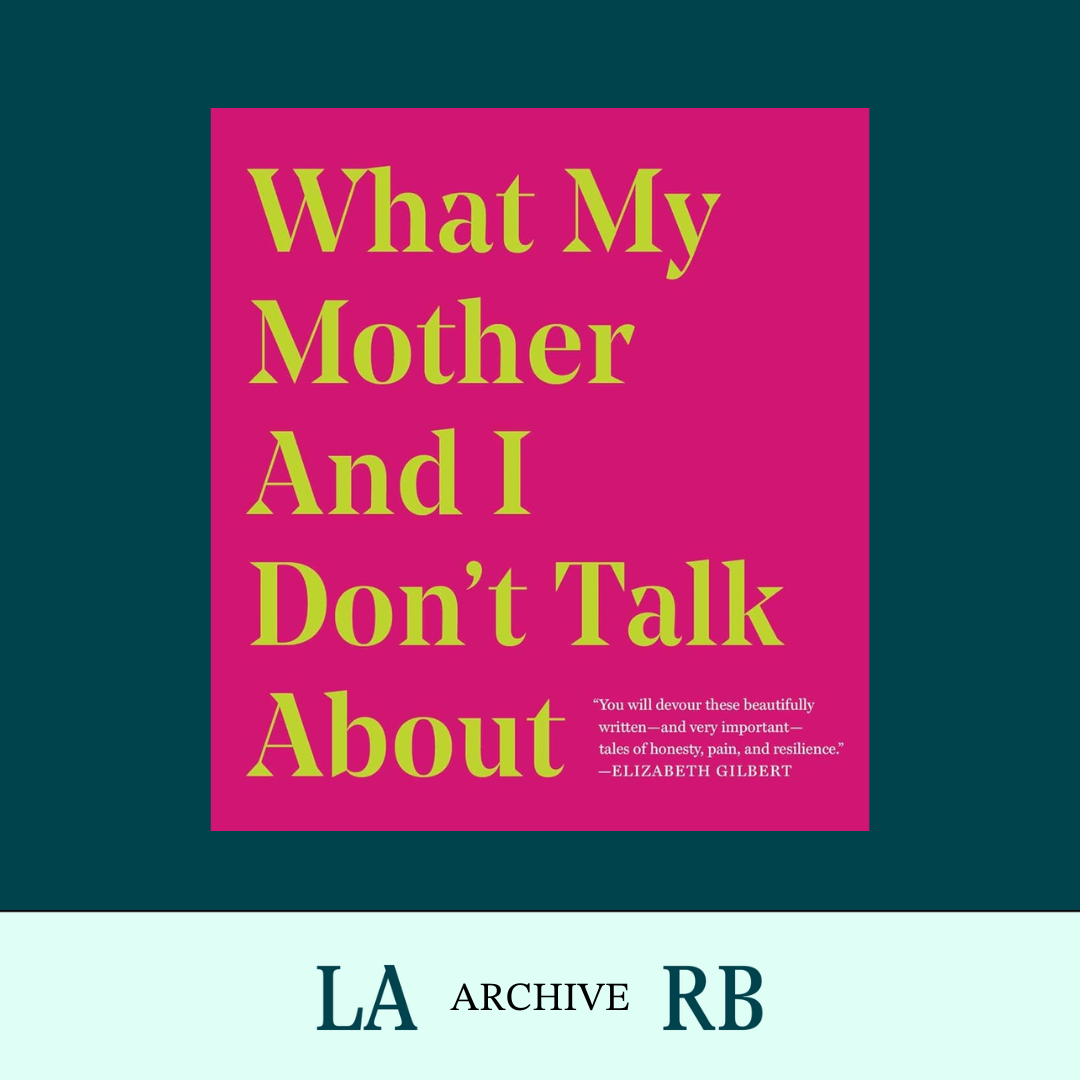Mothers and Daughters and Sons, Oh My!
Mother’s Day inspires Emily Quintanilla to revisit Azarin Sadegh’s review of “What My Mother and I Don’t Talk About: Fifteen Writers Break the Silence,” a book of reflective essays edited by Michele Filgate.
By Emily QuintanillaMay 12, 2024

This year, Mother’s Day inspires Emily Quintanilla to revisit Azarin Sadegh’s review of What My Mother and I Don’t Talk About: Fifteen Writers Break the Silence, a book of reflective essays edited by Michele Filgate.
“Mothers have an extraordinary hold on their children at every age. The way they interact with them, like a constant subliminal message projected between the scenes of their lives, affects everything.” In her review of What My Mother and I Don’t Talk About (2019), edited by Michele Filgate, Azarin Sadegh says what is on all of our minds: mothers are complicated. Within their presence and their absence, their loudness and their silence, our mothers—and our relationship to them—shape who we are.
In honor of Mother’s Day, it feels timely to reflect on those relationships. What do our mothers tell us? And what do they not? What My Mother and I Don’t Talk About is a raw collection of personal essays that asks these and other questions. Sadegh describes the contributors as “[f]ifteen writers from different backgrounds [who] remember their youth and reflect on how the lack of communication (or in some cases the overflow of information) has altered their lives.” In an interview with Taylor Larsen and Dylan Landis, Filgate explains the spark that inspired her contribution to the volume: “I think it’s because I hungered for a deeper relationship with my mother.”
Sadegh writes that “a personal essay reveals one’s concealed truth.” Within the essays of What My Mother and I Don’t Talk About, authors reveal intimate truths about themselves, but also intimate truths about their mothers. Beyond their mothers’ past lives and untrekked paths, the writers all uncover a common theme in their essays—“how they have missed seeing their mothers as people dealing with their own problems.” In the process of writing, each author edges closer to understanding their mom just a little more than before, closing the gaps that have haunted them since childhood.
I feel close to my own mom, but even we share silences. Filgate’s collection encourages all readers—regardless of how close, or not close, they are to their mothers—to strike up a conversation. Filgate pushes us to share our stories and confront silences as a means of finding “closure to the past.”
LARB Contributor
Emily Quintanilla recently graduated from the University of Southern California with a BA in English with an emphasis in creative writing. She worked as an LARB copydesk intern during the spring of 2024.
Did you know LARB is a reader-supported nonprofit?
LARB publishes daily without a paywall as part of our mission to make rigorous, incisive, and engaging writing on every aspect of literature, culture, and the arts freely accessible to the public. Help us continue this work with your tax-deductible donation today!